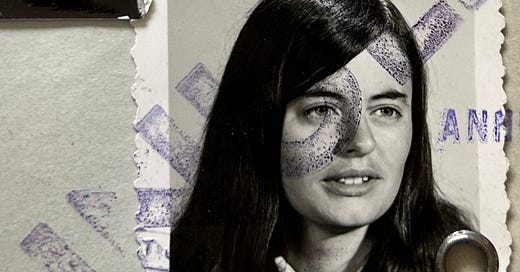I ask you if you've done one of the minor morning chores you carry out daily with proper care and little enthusiasm, and you reply, “pas encore” – “not yet.” We think about my aunt Claudine, whose answer for such questions was always, seemingly, pas encore. Have you emailed your editor? Have you got your plane ticket? Have you taken your walk? Have you checked your heart? Pas encore. When you say it, I believe that you'll get to the chore soon. I take you at your word – not yet, but it will get done. When she said it, we heard “never.”
And yet I do believe she mostly meant that she would get to the task, or rather that she didn't mean to say she never would. She was buying time with that “not yet,” opening a new timeline in which the possibility of her acting was theoretically present. She was buying herself freedom. The chore – corvée – belonged to another reality, not the beach of time she currently inhabited.
Encore does not occupy the same space as yet. As anyone who's yelled enthusiastically at performers knows, it can mean “again.” It also means “still” – in both cases there's a persistence, whether by repetition or continuity. Encore is “yet” in the negation not yet, the opposite of déjà. Or, it is “also,” “yet another”: J’ai encore des choses à faire. “I still have things to do,” but also, “I have even more things to do, still more things to do.”
Yet is quick and sharp; it's also a “but.” It invites a turn. Encore can be stretched out: encooooore. It languishes. It waits. This was Claudine’s pas encore.
She died suddenly and sharply a year ago because of that languishing pas encore. She had “not yet” taken serious measures to check on her health, despite your regular check-ins on the issue, encore, encore. It’s not completely fair to say that my aunt died because of her perpetual delay – sometimes people simply die, despite all their best efforts. But it’s not completely unfair, either.
She had not yet finished her last book, but this wasn’t the shuffling off of an unwelcome task. This was, rather, the task wholly occupying her mind most of the time, keeping her from other, peskier business like cleaning out her car or doing the dishes.
She had not yet cancelled her husband’s phone plan since his death almost exactly two years prior, or taken on sorting a lifetime of his paperwork and amassed objects. That not yet was I think a perpetual elision, one that would be forever in her mind. She could not, would not, fully take on the present without him, nor the vague future in which she would, theoretically, organize her own papers and books and move out of her Berlin flat, back to France.
There were not yets which were very much planned to come to fruition, which were meant to occupy the same dimension as her life while she was living it. Those pas encores were made up of agains, researching and writing – daily obsessions and practices to create, one day, a finished whole.
Much of her object legacy fell upon us to sort, sift and move: Claudine’s encore as in her “after.” And yet, she had firmly sorted out who would inherit the results of her work, both material and emotional, because if something was important, it was important. There was a plan for who would take on her legacy, decided both in meticulous contracts and unconscious assumptions.
Every week, I write in my journal that I still haven’t watered my plants. I say pas encore in a way that means I hope I’ll somehow never have to do it. I am not immune to the indefinite perpetuity of pas encore, either.




What a lovely way to stall my morning chores! Beautiful ❤️
J'adore cette photo de passeport de Claudine.